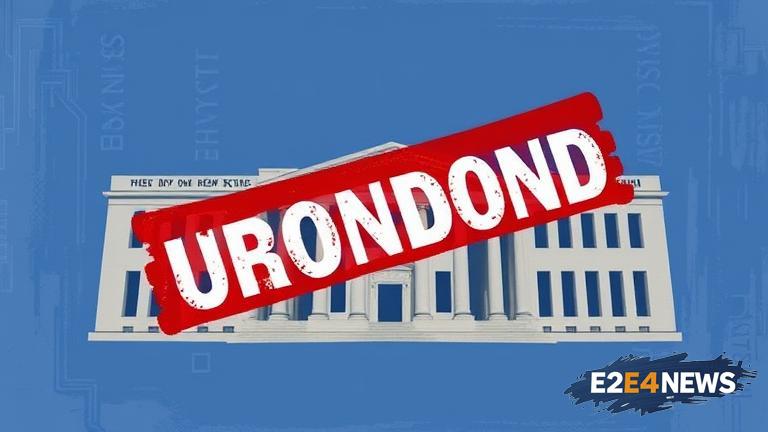The US Department of Justice has made a surprising decision to refuse defense of the Hispanic-Serving Institutions (HSI) program in a lawsuit, leaving the future of the initiative uncertain. The HSI program provides funding to institutions that serve a significant proportion of Hispanic students, with the aim of improving educational outcomes and increasing access to higher education for this demographic. The program has been in place for over two decades and has supported numerous institutions in their efforts to provide high-quality education to Hispanic students. However, a recent lawsuit has challenged the constitutionality of the program, arguing that it unfairly discriminates against non-Hispanic students. The Department of Justice’s decision not to defend the program has sparked concerns among educators and advocates, who argue that the initiative is essential for promoting diversity and inclusion in higher education. The HSI program has been shown to have a positive impact on the educational outcomes of Hispanic students, with studies demonstrating that students who attend HSI institutions are more likely to graduate and pursue careers in fields such as science, technology, engineering, and mathematics (STEM). Despite these benefits, the program has faced criticism and challenges over the years, with some arguing that it is unnecessary or that it unfairly prioritizes the needs of Hispanic students over those of other demographics. The lawsuit challenging the program’s constitutionality was filed by a group of students who claim that they were unfairly denied admission to HSI institutions due to their non-Hispanic status. The students argue that the program’s eligibility criteria, which require institutions to serve a minimum proportion of Hispanic students, are discriminatory and violate their rights under the Equal Protection Clause of the US Constitution. The Department of Justice’s decision not to defend the program has been seen as a significant setback for advocates of the initiative, who had hoped that the federal government would take a strong stance in support of the program. The decision has also sparked concerns about the potential implications for other programs and initiatives that aim to promote diversity and inclusion in higher education. Some have argued that the decision sets a dangerous precedent, suggesting that the federal government is no longer committed to supporting programs that benefit underrepresented groups. Others have pointed out that the decision may have significant consequences for the many institutions that rely on HSI funding to support their programs and services. The HSI program has been an important source of funding for many institutions, particularly those that serve large proportions of Hispanic students. Without this funding, many institutions may struggle to provide the same level of support and resources to their students. The decision has also sparked a wider debate about the role of the federal government in promoting diversity and inclusion in higher education. Some have argued that the government has a critical role to play in supporting programs and initiatives that benefit underrepresented groups, while others have suggested that such programs are unnecessary or that they unfairly prioritize the needs of certain demographics over others. As the lawsuit challenging the HSI program’s constitutionality continues to make its way through the courts, many are watching with bated breath to see what the ultimate outcome will be. The decision will have significant implications not only for the HSI program, but also for the many institutions and students that rely on it. In the meantime, advocates of the program are urging the federal government to reconsider its decision and to take a stronger stance in support of the initiative. They argue that the program is essential for promoting diversity and inclusion in higher education, and that it has a critical role to play in supporting the educational outcomes of Hispanic students. The HSI program has a long history, dating back to the 1990s, when it was first established as a way of supporting institutions that served large proportions of Hispanic students. Over the years, the program has evolved and expanded, with the aim of providing more comprehensive support to institutions and students. Today, the program provides funding to over 350 institutions, which use the funds to support a range of programs and services, including academic advising, mentorship, and career counseling. The program has been shown to have a positive impact on the educational outcomes of Hispanic students, with studies demonstrating that students who attend HSI institutions are more likely to graduate and pursue careers in fields such as STEM. Despite these benefits, the program has faced criticism and challenges over the years, with some arguing that it is unnecessary or that it unfairly prioritizes the needs of Hispanic students over those of other demographics. The lawsuit challenging the program’s constitutionality is just the latest in a long line of challenges and criticisms that the program has faced. As the debate over the program’s future continues, many are urging the federal government to take a stronger stance in support of the initiative. They argue that the program is essential for promoting diversity and inclusion in higher education, and that it has a critical role to play in supporting the educational outcomes of Hispanic students.
